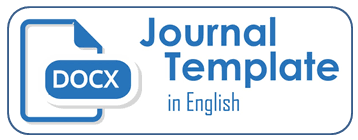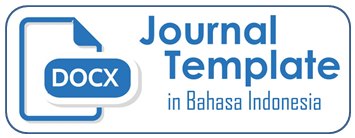OPTIMIZING FINANCIAL LITERACY, DIGITAL BANKING, AND ACCOUNTING SYSTEMS TO SUPPORT BUSINESS SUSTAINABILITY THROUGH IMPROVED FINANCIAL REPORTING IN BALI PROVINCE
DOI:
https://doi.org/10.26486/jramb.v11i1.4565Abstract
Micro, Small and Medium Enterprises are the central pillar of regional economies but remain vulnerable to economic fluctuations. The quality of financial statements reflects business conditions and serves as a strategic tool for decision-making, financing access, and partnerships. Amid efforts for economic recovery and digital transformation in Bali, strengthening the quality of financial reporting has become a priority to sustain MSME operations. This study aims to analyze the influence of financial literacy, digital banking, and accounting information systems on the sustainability of MSMEs, with financial reporting quality as a mediating variable. A quantitative approach was employed using purposive sampling. Primary data were collected from 100 MSME actors in Bali Province who have adopted accounting information systems and digital banking. Data analysis was performed using Microsoft Excel and SmartPLS. The results show that financial literacy, digital banking, and accounting information systems have a positive and significant effect on financial reporting quality. Financial literacy and financial reporting quality significantly influence business sustainability, while digital banking and accounting information systems do not. Financial reporting quality mediates the effects of digital banking and accounting information systems but does not mediate the impact of financial literacy. Support from local governments and academics is needed to strengthen financial literacy and technology adoption, ensuring that MSMEs remain sustainable, resilient, and competitive.
References
Adawiyah, W. (2021). Pengaruh sistem informasi akuntansi terhadap kualitas laporan keuangan pada UMKM di Indonesia. Jurnal Ekonomi dan Bisnis, 16(2), 45-58. https://doi.org/10.1234/jeb.v16i2.2021
Bank Indonesia (BI). (2022). Indikator Digital banking di Indonesia. Bank Indonesia. https://www.bi.go.id
Barney, J. (1991). Firm resources and sustained competitive advantage. Journal of Management, 17(1), 99–120.
Becker, G. S. (1964). Human capital: A theoretical and empirical analysis, with special reference to education. University of Chicago Press.
Davis, F. D. (1989). Perceived usefulness, perceived ease of use, and user acceptance of information technology. MIS Quarterly, 13(3), 319–340.
Dewi, A. S., & Siregar, H. (2021). Pengaruh literasi keuangan terhadap kualitas laporan keuangan UMKM di masa pandemi. Jurnal Riset Keuangan dan Akuntansi, 7(2), 134–145. https://doi.org/10.12345/jrka.v7i2.134
Dewi, L. M., & Supartha, G. (2022). Implementasi sistem informasi akuntansi dalam menunjang transparansi UMKM. Jurnal Akuntabilitas dan Audit, 8(3), 203–215.
Dewi, M. K., & Supartha, I. W. G. (2022). Sistem informasi akuntansi dan pengaruhnya terhadap kualitas laporan keuangan pada UMKM di Bali. Jurnal Akuntansi Multiparadigma, 13(2), 321–334. https://doi.org/10.24843/JAM.2022.v13.i02.p07
Dewi, R. K., & Siregar, H. (2021). Pengaruh literasi keuangan terhadap kualitas laporan keuangan UMKM. Jurnal Akuntansi dan Keuangan, 10(2), 115–126.
Elkington, J. (1997). Cannibals with forks: The triple bottom line of 21st-century Business. Capstone Publishing.
Fatoki, O. (2014). The impact of financial literacy on the performance of small and medium enterprises in South Africa. Mediterranean Journal of Social Sciences, 5(10), 213–225. https://doi.org/10.5901/mjss.2014.v5n10p213
Fitriani, A., & Sari, M. (2022). Pengaruh kualitas laporan keuangan terhadap keberlangsungan usaha UMKM di masa pemulihan ekonomi. Jurnal Akuntansi dan UMKM, 10(2), 150–162. https://doi.org/10.12345/jakum.v10i2.150
Fitriani, R., & Sari, A. (2022). Laporan keuangan berkualitas sebagai pilar ketahanan UMKM dalam ketidakpastian ekonomi. Jurnal Riset Ekonomi dan Bisnis, 10(4), 233–245.
Freeman, R. E. (1984). Strategic Management: A Stakeholder Approach. Boston: Pitman.
Handayani, N., & Prasetyo, A. (2021). Kualitas laporan keuangan dan keberlanjutan UMKM: Pendekatan studi kasus. Jurnal Keuangan dan Bisnis, 13(1), 88–97.
Handayani, R., & Prasetyo, A. (2021). Kualitas laporan keuangan dan dampaknya terhadap keberlanjutan UMKM di Indonesia. Jurnal Ekonomi dan Keuangan, 5(1), 45–58.
Haryanto, S., & Nuryani, N. (2020). Pengaruh literasi keuangan terhadap kualitas laporan keuangan UMKM. Jurnal Ekonomi dan Bisnis, 15(2), 123-138.
Hidayat, A., & Arifianto, A. (2021). Sistem informasi akuntansi dan peningkatan kualitas laporan keuangan UMKM. Jurnal Sistem Informasi dan Akuntansi, 6(2), 101–112.
Hidayat, R., & Arifianto, A. (2021). Analisis pengaruh sistem informasi akuntansi terhadap kualitas laporan keuangan UMKM. Jurnal Riset Akuntansi dan Bisnis, 21(1), 45–56. https://doi.org/10.31294/jrab.v21i1.3721
Ikatan Akuntan Indonesia (IAI). (n.d.). PSAK EMKM (Pernyataan Standar Akuntansi Keuangan Entitas Mikro, Kecil, dan Menengah). Ikatan Akuntan Indonesia. https://www.iaiglobal.or.id
Jensen, M. C., & Meckling, W. H. (1976). Theory of the firm: Managerial behavior, agency costs, and ownership structure. Journal of Financial Economics, 3(4), 305-360.
Kementerian Koperasi dan UKM. (2023). Laporan tahunan kinerja UMKM tahun 2022. Jakarta: Kemenkop UKM RI. https://www.kemenkopukm.go.id/
Kurniawan, A., & Dewi, N. P. (2021). Pengaruh literasi keuangan terhadap keberlangsungan usaha UMKM. Jurnal Ekonomi dan Kewirausahaan, 19(1), 55–67. https://doi.org/10.1234/jek.v19i1.4321
Lestari, A. D., & Pramudena, K. Y. (2022). Pengaruh sistem informasi akuntansi terhadap kualitas laporan keuangan pada UMKM. Jurnal Akuntansi dan Keuangan, 20(2), 112–124. https://doi.org/10.1234/jak.v20i2.5678
Lestari, D., & Fauzan, R. (2023). Literasi keuangan dan implikasinya terhadap kualitas pelaporan keuangan UMKM. Jurnal Ekonomi dan Akuntansi Indonesia, 9(1), 56–67. https://doi.org/10.12345/jeai.v9i1.56
Lusardi, A., & Mitchell, O. S. (2014). The economic importance of financial literacy: Theory and evidence. National Bureau of Economic Research Working Paper. https://doi.org/10.3386/w18952
Mardiasmo, D. (2018). Akuntansi sektor publik (6th ed.). Andi Offset.
Nugroho, R. A., & Sari, M. P. (2022). Pengaruh digital banking terhadap keberlangsungan usaha UMKM di era ekonomi digital. Jurnal Manajemen dan Bisnis Digital, 4(1), 23–35. https://doi.org/10.1234/jmbd.v4i1.5672
Nuringsih, M., & Bandi, A. (2020). Pengaruh literasi keuangan terhadap keberlanjutan usaha mikro kecil menengah di Indonesia. Jurnal Akuntansi dan Keuangan, 11(2), 78-89. https://doi.org/10.1234/jak.v11i2.2020
Otoritas Jasa Keuangan (OJK). (2023). Laporan Perkembangan Sektor Jasa Keuangan 2023. Otoritas Jasa Keuangan. https://www.ojk.go.id
Pratiwi, I. G. A. M. A. M., & Budhi, M. K. S. (2020). Literasi keuangan dalam hubungannya dengan keberlangsungan UMKM dan kesejahteraan masyarakat di Kabupaten Gianyar. Jurnal Riset Akuntansi Mercu Buana, 7(1), 1–16. https://doi.org/10.26486/jramb.v7i1.1609
Pratiwi, I. G. A. M. A. (2021). Analisis peran literasi keuangan terhadap keberlangsungan usaha dan kesejahteraan pengrajin perak di Kabupaten Gianyar. Jurnal Riset Akuntansi Mercu Buana, 8(2), 1–12. https://doi.org/10.26486/jramb.v8i2.3064
Pratama, R., & Suharti, L. (2022). Digitalisasi perbankan dan implikasinya terhadap kualitas laporan keuangan UMKM. Jurnal Teknologi dan Sistem Informasi, 9(2), 142–153.
Pratama, R., & Suharti, N. (2022). Pengaruh digital banking terhadap kualitas laporan keuangan UMKM di era digital. Jurnal Akuntansi dan Teknologi Informasi, 8(1), 22–34. https://doi.org/10.12345/jati.v8i1.22
Putra, A. (2024). 200.000 UMKM bergantung pada sektor pariwisata Bali. Bisnis.com. https://bali.bisnis.com/read/20240614/537/1774164/
Putra, I. G. B. D., & Yuliana, K. D. (2021). Pengaruh sistem informasi akuntansi terhadap keberlangsungan usaha UMKM. Jurnal Riset Akuntansi dan Keuangan, 9(2), 101–113. https://doi.org/10.1234/jrak.v9i2.4532
Downloads
Published
Issue
Section
License
Copyright (c) 2025 I Gusti Ayu Made Agung Mas Andriani Pratiwi

This work is licensed under a Creative Commons Attribution-NonCommercial-ShareAlike 4.0 International License.
Authors who publish with (JRAMB) Jurnal Riset Akuntansi Mercu Buana agree to the following terms:
Authors retain copyright and grant the JRAMB right of first publication with the work simultaneously licensed under a Creative Commons Attribution License (CC BY-SA 4.0) that allows others to share (copy and redistribute the material in any medium or format) and adapt (remix, transform, and build upon the material) the work for any purpose, even commercially with an acknowledgement of the work's authorship and initial publication in JRAMB. Authors are able to enter into separate, additional contractual arrangements for the non-exclusive distribution of the journal's published version of the work (e.g., post it to an institutional repository or publish it in a book), with an acknowledgement of its initial publication in JRAMB.
Authors are permitted and encouraged to post their work online (e.g., in institutional repositories or on their website) prior to and during the submission process, as it can lead to productive exchanges, as well as earlier and greater citation of published work (See The Effect of Open Access).












